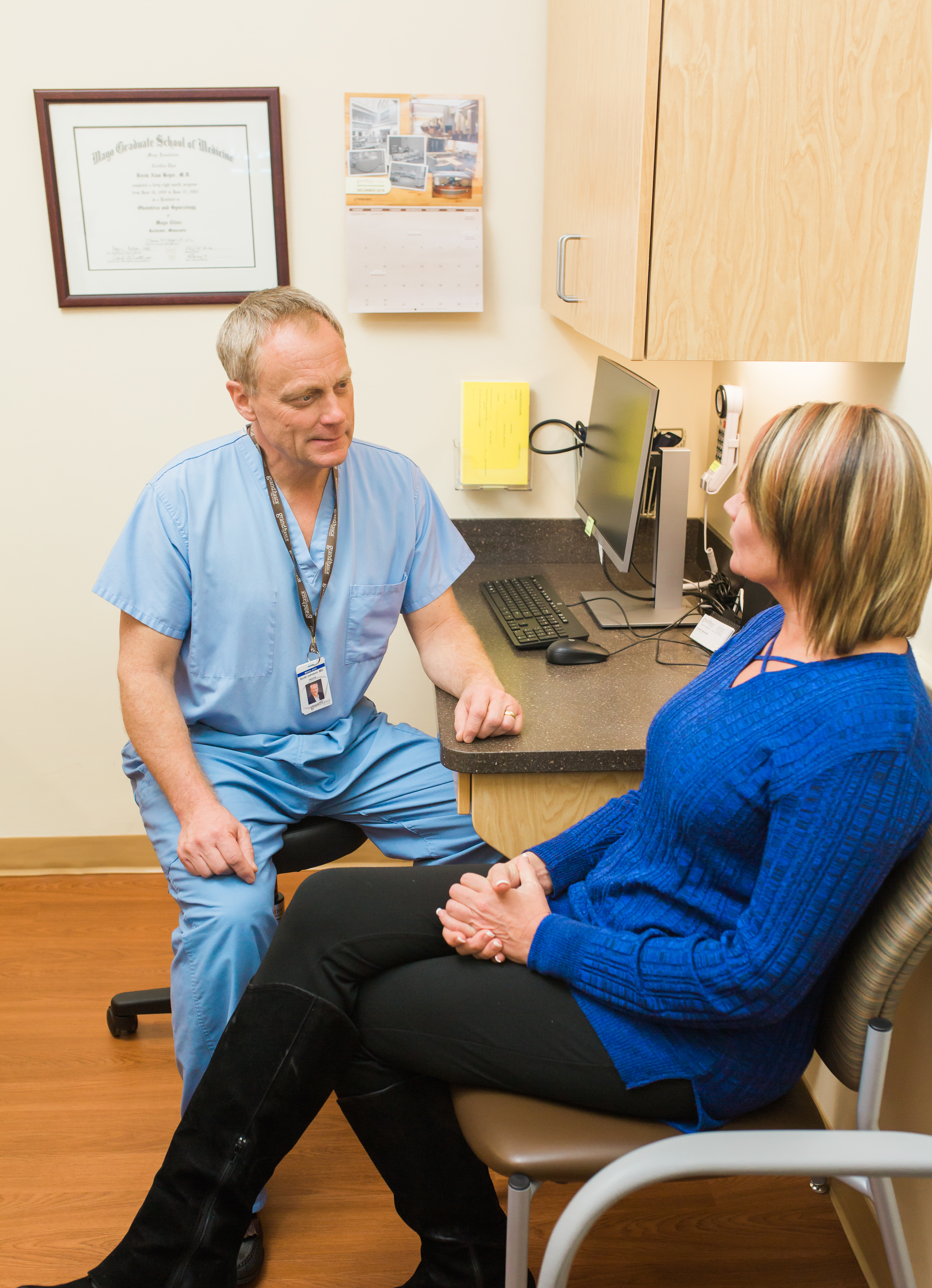
Health and Wellness
Menopause: Symptoms & Treatments
- November 25, 2020
- By Scott Johnson, OB/Gyn
The average age of menopause in the United States is 51. It's considered normal for menopause to occur any time after the age of 40. If however it occurs before age 40, a more thorough evaluation is needed to make sure there is not some other hormonal or major medical issue causing menopause to occur early.
The most common symptoms of menopause itself are what we call vasomotor symptoms, which are hot flashes or night sweats which are fairly sudden onsets of feeling warm and sweaty and maybe experiencing palpitations of your heart. They can occur in the daytime or they can occur at night waking you out of a full sleep. Another symptom that often is quite bothersome to women is sleep disturbance and it has been shown that women during the time of perimenopause or menopause wake up frequently and so often a chronic fatigue can develop because of that
The last symptom that women will often describe frequently is a vaginal dryness. tThe vaginal tissues need estrogen to stay healthy and the lack of estrogen in menopause causes the tissues to become thinner, less lubricated and thus produce a number of symptoms related to .dryness
There are a number of treatments that can help the symptoms that were mentioned, from hormonal regulation or replacement of some hormones for symptoms to non-hormonal options that can help with hot flashes, sweats or bleeding issues. All of those can be discussed with your doctor and in most cases symptoms can be made much better and improved upon. Menopause tends to be less problematic in women who eat healthy, maintain a normal weight and maintain a regular exercise schedule.
The time to see a physician regarding menopausal symptoms is if bleeding is getting heavier or more irregular or you're having spotting in between your cycles. It's important to see your doctor to make sure nothing else more serious is causing that abnormal bleeding. Secondly, if the symptoms are definitely life-changing for you and are problematic to the point where you're not sleeping well, you're getting more fatigued or you're just not feeling like yourself, come in and see your doctor because there are definitely
things that can be done to help the situation.